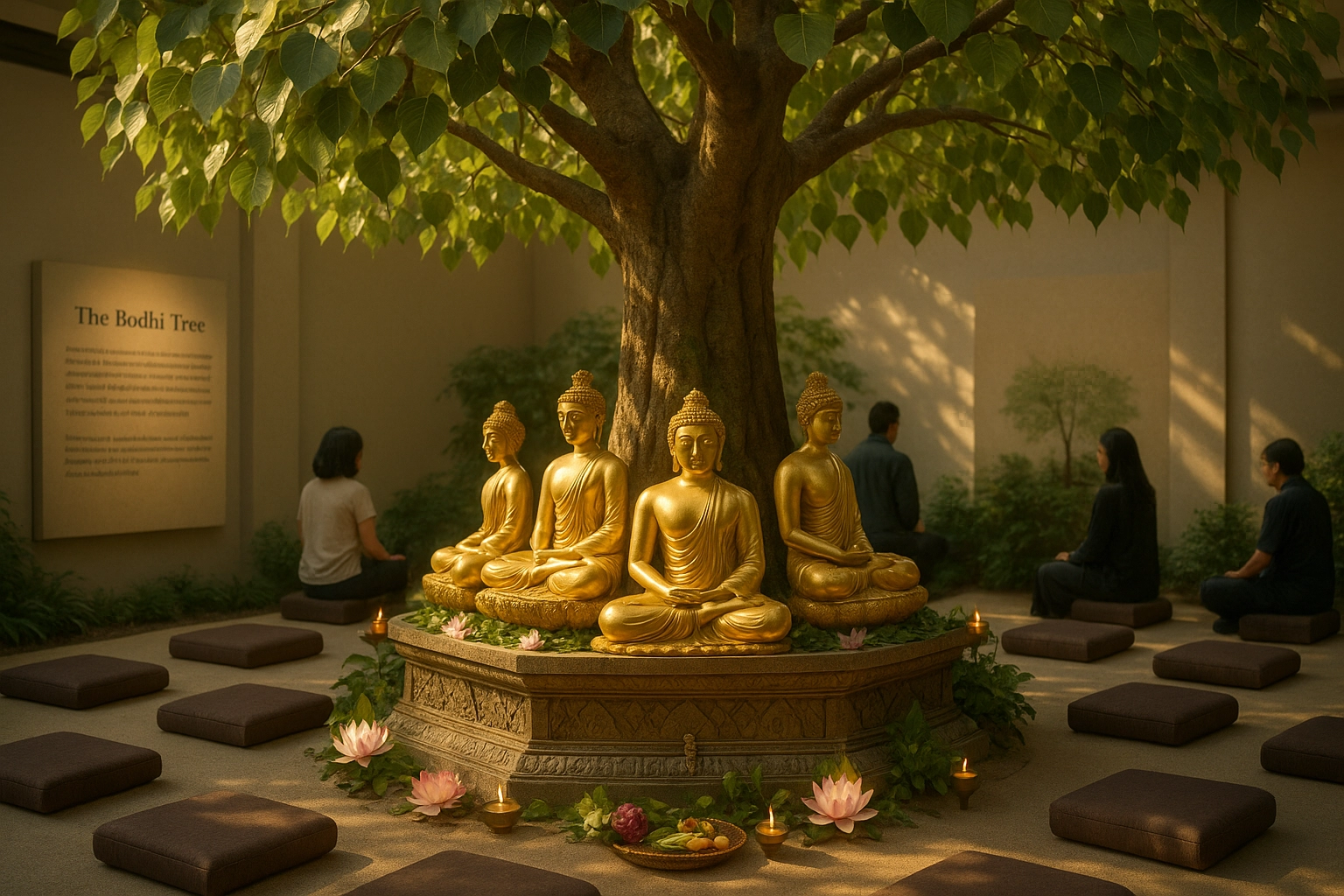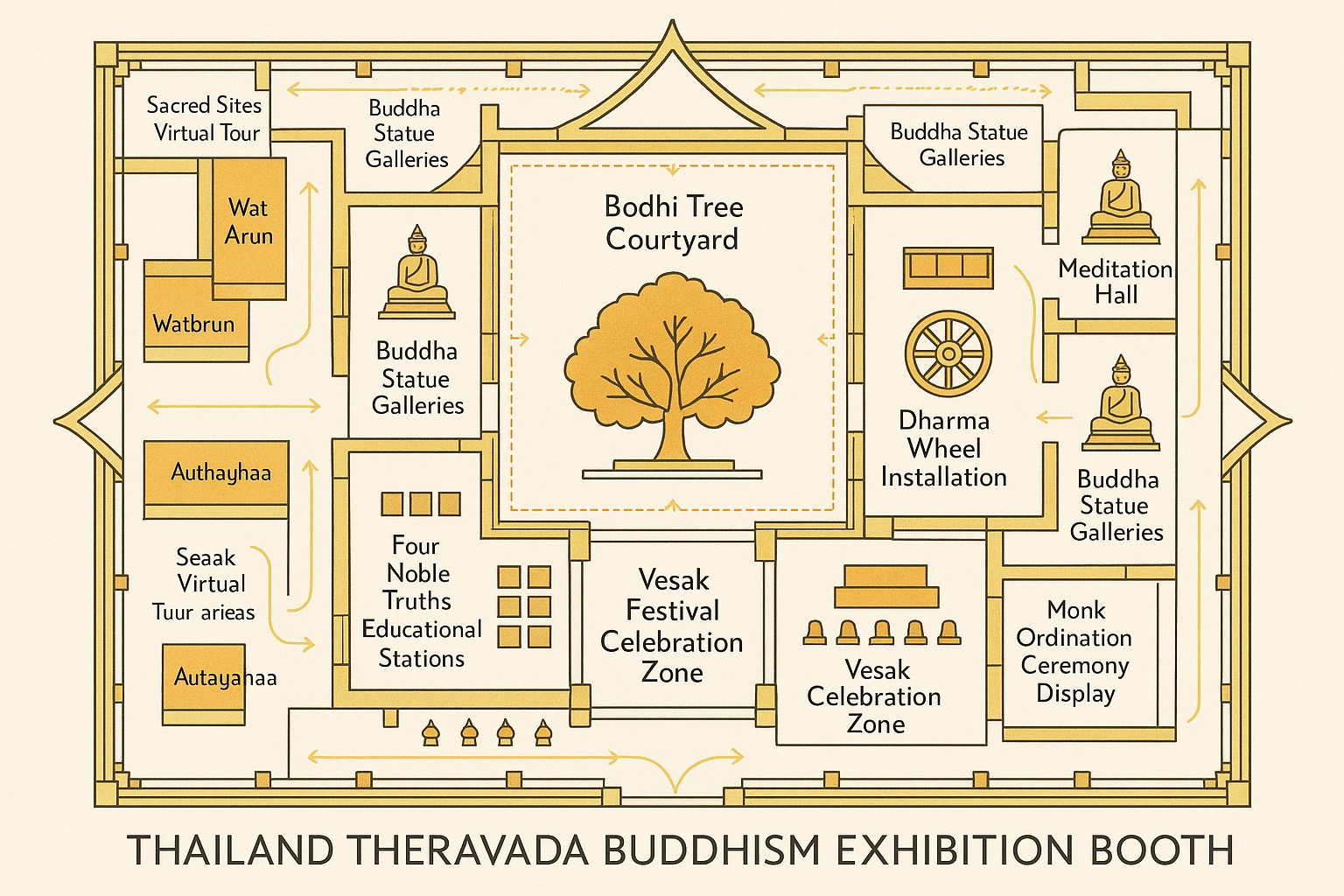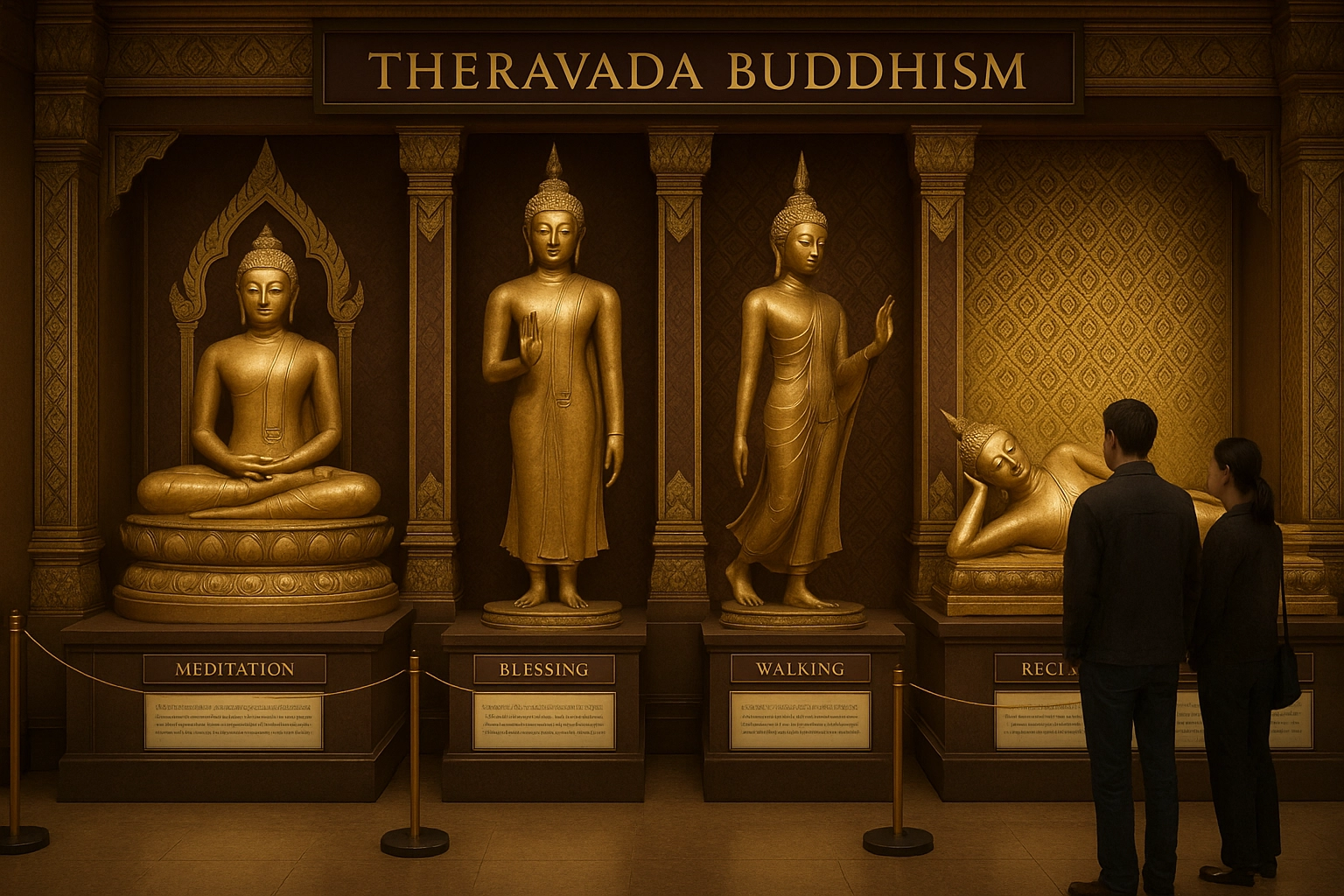Thai Theravada Buddhism Exhibition
Explore the ancient wisdom and living tradition of Thai Theravada Buddhism through our immersive exhibition experience
Exhibition Layout & Experience

Exhibition Floor Plan
Interactive layout showing meditation halls, Buddha statue displays, and temple architecture

Main Exhibition Hall
Featuring traditional Thai temple elements, meditation spaces, and cultural artifacts

Sacred Bodhi Garden
Traditional Thai temple garden with Bodhi trees symbolizing enlightenment and the Buddha's awakening
Historical Origin
Theravada Buddhism, known as the "Teaching of the Elders," originated in India soon after the Buddha's passing in the 5th century BCE. It spread to Southeast Asia via Sri Lanka around the 3rd century BCE. In Thailand, Theravada Buddhism was established as the dominant tradition by the 13th century, during the Sukhothai Kingdom.
Emergence & Development
Early Thai kingdoms adopted Theravada Buddhism from Sri Lanka, gradually integrating it into royal and social institutions. Monastic education, temple construction, and the translation of the Pali Canon into Thai solidified its influence. Today, over 90% of Thais identify as Theravada Buddhists.
Key Figures & Leaders
King Ramkhamhaeng (13th c.)
Promoted Theravada Buddhism as the state religion in Sukhothai.
Ajahn Mun Bhuridatta Thera
Key leader in the Thai Forest Tradition, emphasizing meditation and simplicity.
Phra Ajahn Chah
Modern meditation master, founder of the international Wat Nong Pah Pong community.
Core Concepts & Beliefs
Four Noble Truths
Truth of suffering, its cause, cessation, and the path to liberation.
Noble Eightfold Path
Guidelines for ethical conduct, mental discipline, and wisdom.
Karma and Rebirth
Actions shape future experiences and rebirths.
Merit-making
Generating positive karma through generosity, virtue, and mental cultivation.
Fundamental Principles
Ethical Conduct (Sīla)
Living with morality and discipline.
Mental Cultivation (Samādhi)
Practicing meditation and mindfulness.
Wisdom (Paññā)
Deep understanding of impermanence, suffering, and non-self.
Community (Sangha)
Monastic and lay followers supporting each other on the path.
Sacred Symbols
Bodhi Tree
Symbolizing the Buddha's enlightenment.
Dhamma Wheel
Representing the Buddha's teachings.
Lotus Flower
Purity and the unfolding of spiritual potential.
Major Rituals & Ceremonies
Puja and Offerings
Daily rituals at temples, offering flowers, incense, and food to Buddha images.
Alms Rounds
Monks receive food from laypeople each morning as a practice of humility and generosity.
Vesak (Buddha Day)
Celebrating the Buddha's birth, enlightenment, and passing.
Meditation Retreats
Intensive periods of mindfulness and insight meditation practice.
Global Influence & Cultural Impact
Global Influence
Thai Theravada Buddhism is one of the most widely practiced Buddhist traditions globally. Thai meditation masters and practices have influenced the spread of mindfulness and insight meditation (Vipassana) in the West.
Cultural Impact
Theravada Buddhism shapes Thai values, festivals, art, architecture, and law. It fosters a strong sense of community, generosity, and respect for elders and teachers throughout Thai society.
Geographical Spread
Practiced throughout Thailand, Sri Lanka, Myanmar, Laos, and Cambodia. In Thailand, every town and village has at least one temple, serving as religious and community centers.
Important Spiritual Books & Texts
Pali Canon (Tipitaka)
Vinaya, Sutta, and Abhidhamma teachings
Dhammapada
Collection of the Buddha's sayings
Visuddhimagga
The Path of Purification meditation manual
Associated Holy Places & Structures
Wat Pho (Bangkok)
Temple of the Reclining Buddha.
Wat Phra Kaew
Temple of the Emerald Buddha, most sacred site in Thailand.
Wat Doi Suthep (Chiang Mai)
Sacred mountain temple.
Ayutthaya Historical Park
UNESCO World Heritage site of ancient temples.
Memorable Quote
"If your mind becomes firm like a rock and no longer shakes, in a world where everything is shaking, your mind will become your greatest friend."— Ajahn Chah